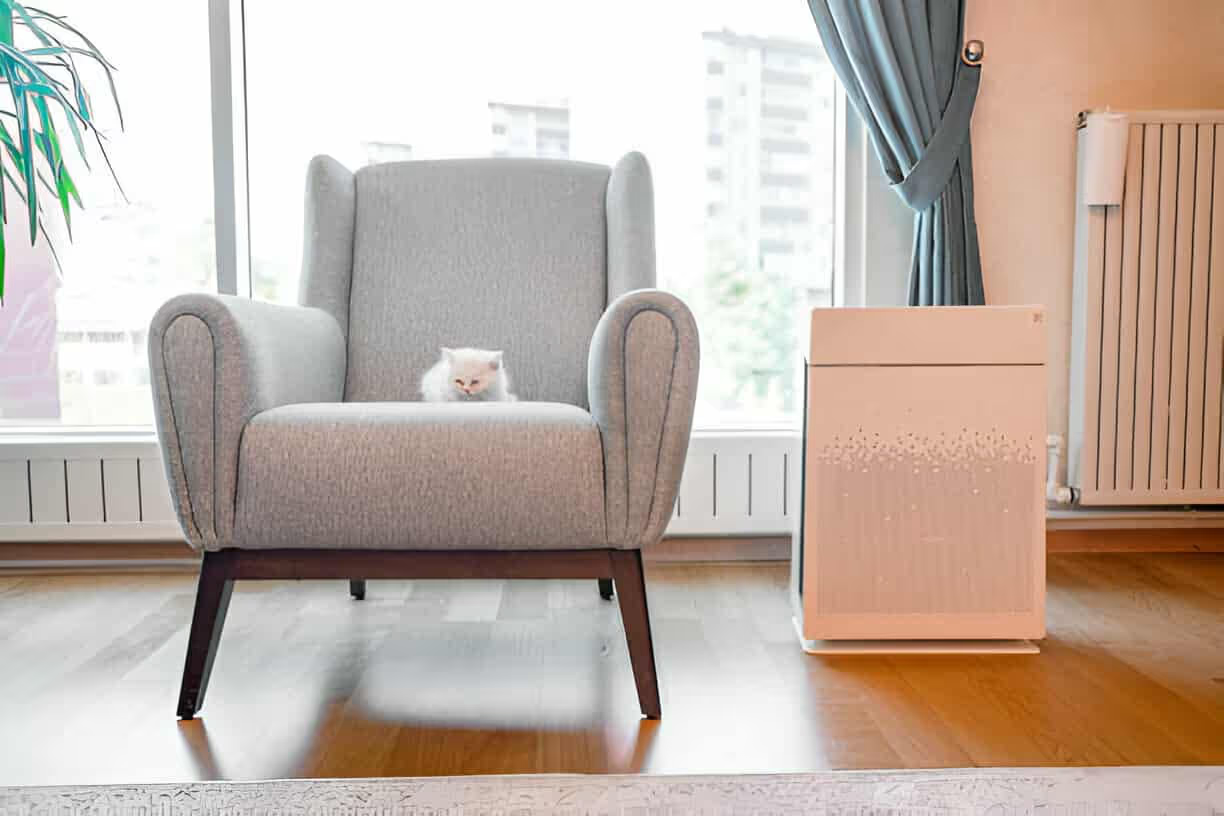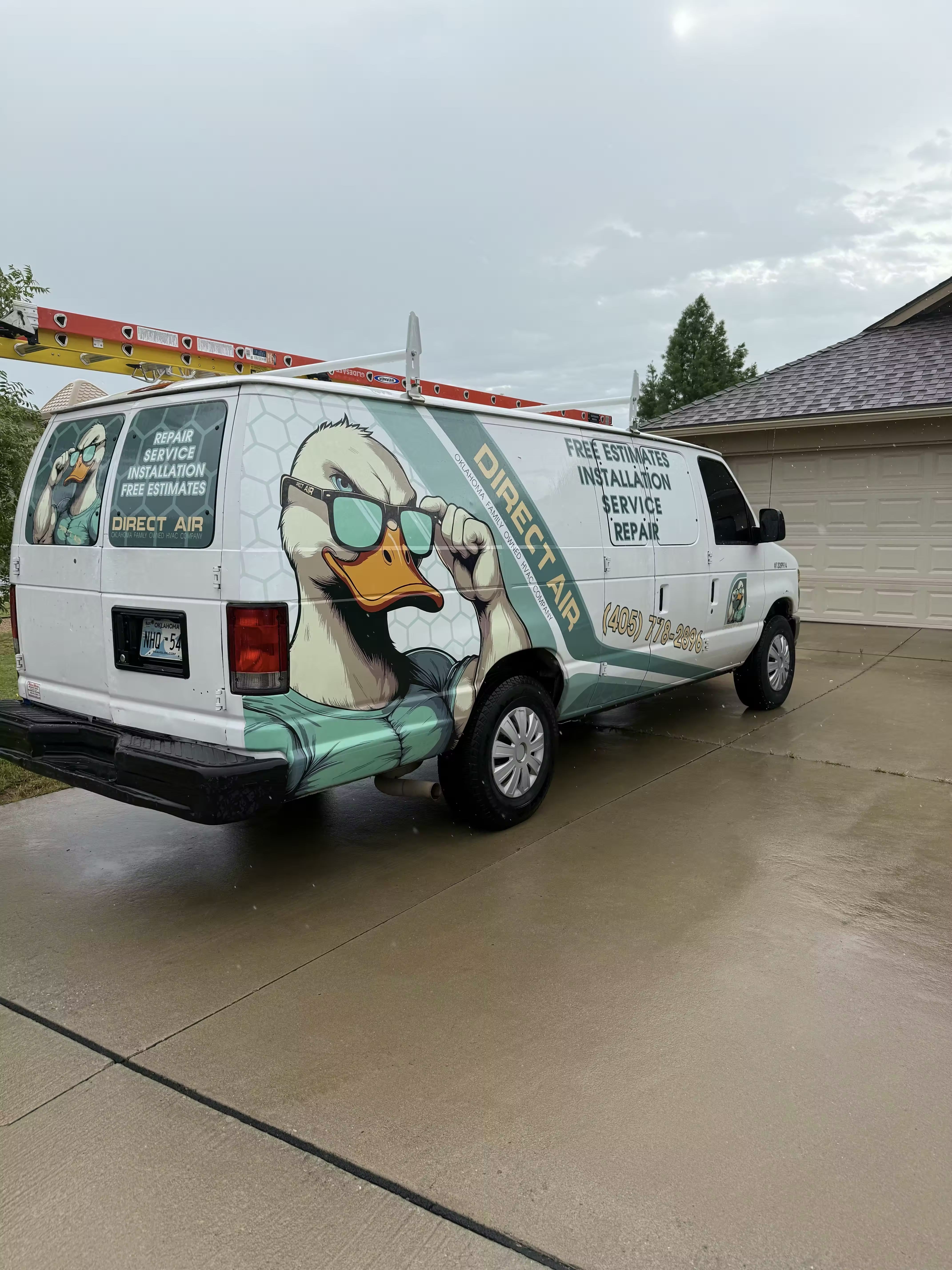Best Home Air Filtration in Elk City, OK


Ensuring clean, healthy air in your Elk City home is crucial, as unseen particles like dust, pollen, and mold impact indoor air quality. A professionally installed whole-home air filtration system integrates with your HVAC, efficiently purifying air throughout every room for superior protection. This page details common indoor air pollutants and explains various home air filtration technologies like MERV, HEPA, and UV-C lights. Selecting the optimal system requires a professional assessment, improving your home's health and comfort.
Superior Home Air Filtration for Elk City Residences
The air inside your Elk City home should be a sanctuary, a clean and healthy environment for you and your family. Yet, unseen airborne particles can circulate through your living spaces, contributing to everything from seasonal allergies to lingering odors and respiratory irritation. Dust, pollen from Oklahoma’s vast landscapes, pet dander, mold spores, and volatile organic compounds (VOCs) from household products can become trapped indoors, often making indoor air quality significantly worse than the air outside. Investing in a high-quality home air filtration system is the most effective way to take control of your indoor environment, ensuring every breath you take is fresh, clean, and healthy.
A professionally installed, whole-home air filtration system integrates directly with your existing heating and cooling system, working silently and efficiently to purify the air in every room, not just one. This comprehensive approach provides a level of cleanliness and health protection that portable, single-room units simply cannot match.
Understanding the Threats to Your Indoor Air Quality
The air in your home is constantly being filled with pollutants from various sources. In the Elk City area, residents often contend with a specific mix of airborne contaminants that can impact comfort and health.
- Particulates: This category includes dust, dirt, pet dander, and pollen. These particles can trigger allergic reactions, asthma attacks, and other respiratory issues. They also settle on surfaces, creating a constant need for dusting.
- Biological Contaminants: Microscopic threats like bacteria, viruses, and mold spores thrive in indoor environments. They can circulate through your HVAC system, spreading illness and contributing to musty odors and potential health risks.
- Gases and Odors: Volatile Organic Compounds (VOCs) are gases emitted from common household items like cleaning supplies, paints, new furniture, and air fresheners. These can cause headaches, nausea, and long-term health effects. Unpleasant odors from cooking, pets, or smoking can also become trapped, reducing your home's comfort.
Decoding Air Filtration Technology: MERV, HEPA, and More
Choosing the right air filtration system begins with understanding the technologies designed to combat these different types of pollutants. The goal is to find a solution that effectively targets your specific concerns without impeding the performance of your HVAC system.
- MERV (Minimum Efficiency Reporting Value): This is the standard rating system for mechanical air filters. The MERV scale ranges from 1 to 20, with a higher number indicating finer filtration.
- MERV 1-4: Basic filtration that captures larger particles like dust and pollen.
- MERV 8-13: Considered the ideal range for most residential homes, these filters are highly effective at capturing smaller particles like pet dander, mold spores, and dust mite debris without overly restricting airflow to your HVAC system.
- MERV 14+: These high-efficiency filters offer superior filtration but may require professional consultation to ensure they are compatible with your specific heating and cooling equipment.
- HEPA (High-Efficiency Particulate Air) Filters: HEPA is the gold standard in air purification. By definition, a true HEPA filter must capture at least 99.97% of airborne particles as small as 0.3 microns. These systems are exceptionally effective at removing the vast majority of dust, pollen, pet dander, mold, and even some bacteria from the air, making them an excellent choice for households with severe allergy or asthma sufferers.
- Electronic Air Cleaners: These systems use an electrostatic charge to attract and capture airborne particles. They are highly efficient and feature collection cells that can be washed and reused, eliminating the need for frequent filter replacements.
- UV-C Germicidal Lights: While filters trap particles, UV-C light systems are designed to neutralize biological contaminants. Installed within your ductwork, these lamps emit powerful ultraviolet light that scrambles the DNA of microorganisms like bacteria, viruses, and mold spores as they pass by, rendering them harmless and preventing them from reproducing and circulating throughout your home.
The Whole-Home Advantage: Comprehensive and Convenient
While portable air purifiers can offer some benefit in a small, enclosed space like a bedroom, a whole-home air filtration system provides a far superior solution for maintaining clean air throughout your entire house.
Integrated directly into your HVAC system, a whole-home unit purifies all the air that passes through your furnace or air handler. This means every time your system runs, it is actively cleaning the air delivered to every single room. This out-of-sight, out-of-mind operation is not only more effective but also more convenient. There are no bulky units to move around, no noise in your living spaces, and maintenance typically involves a simple filter change or cleaning just a few times a year, depending on the model.
Selecting the Perfect Air Filtration System for Your Home
The "best" home air filtration system is not a one-size-fits-all product. The right choice depends on a careful evaluation of your family’s unique needs and your home’s specific characteristics. Key factors to consider include the size of your home, the age and type of your HVAC system, and any specific health concerns, such as allergies, asthma, or compromised immune systems. The presence of pets, smokers, or any recent remodeling can also influence the ideal solution.
A professional assessment is crucial to determine the most effective and compatible system. An experienced technician can evaluate your current ductwork and HVAC equipment to recommend a filtration solution that provides maximum purification without negatively impacting airflow, which is essential for the efficiency and longevity of your heating and cooling system. Combining a high-efficiency media filter with a UV-C light system, for example, can provide a multi-layered defense against both particulates and germs, offering the ultimate peace of mind.

Financing
.png)







